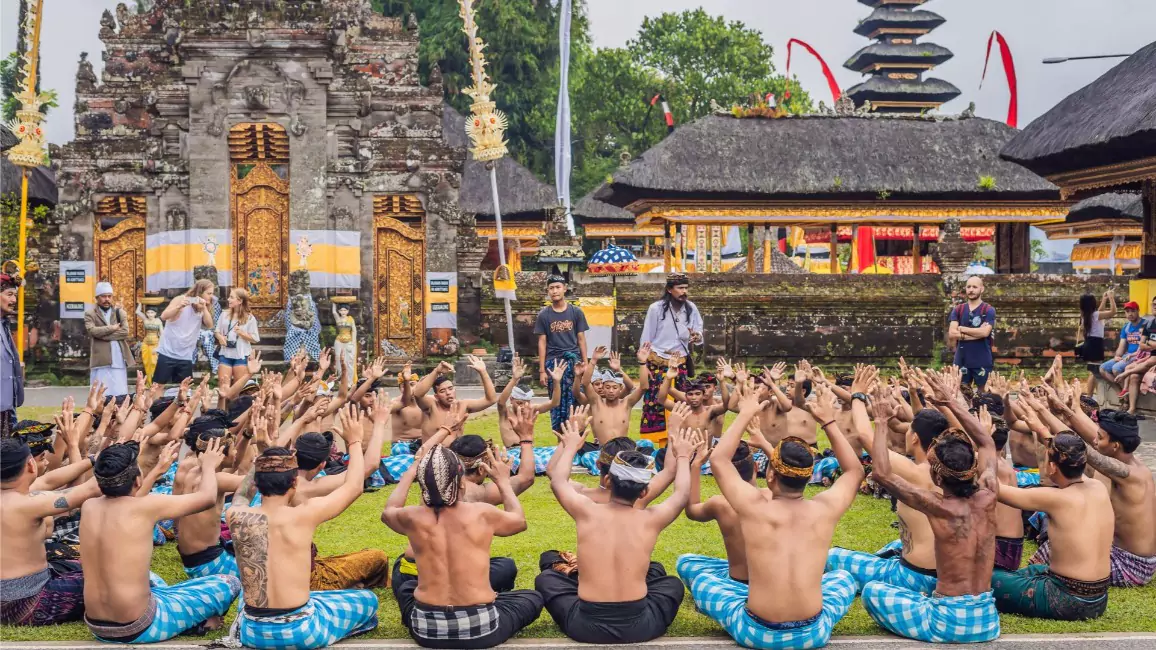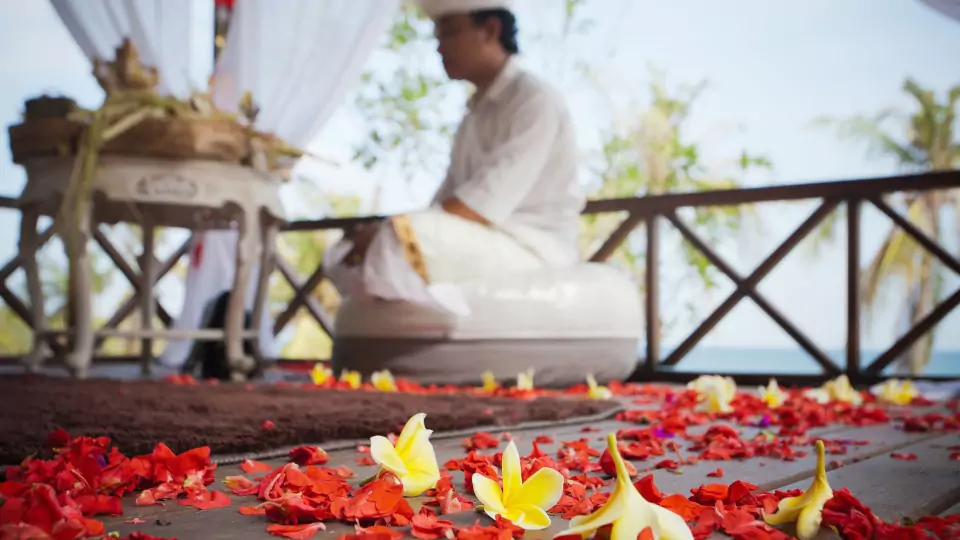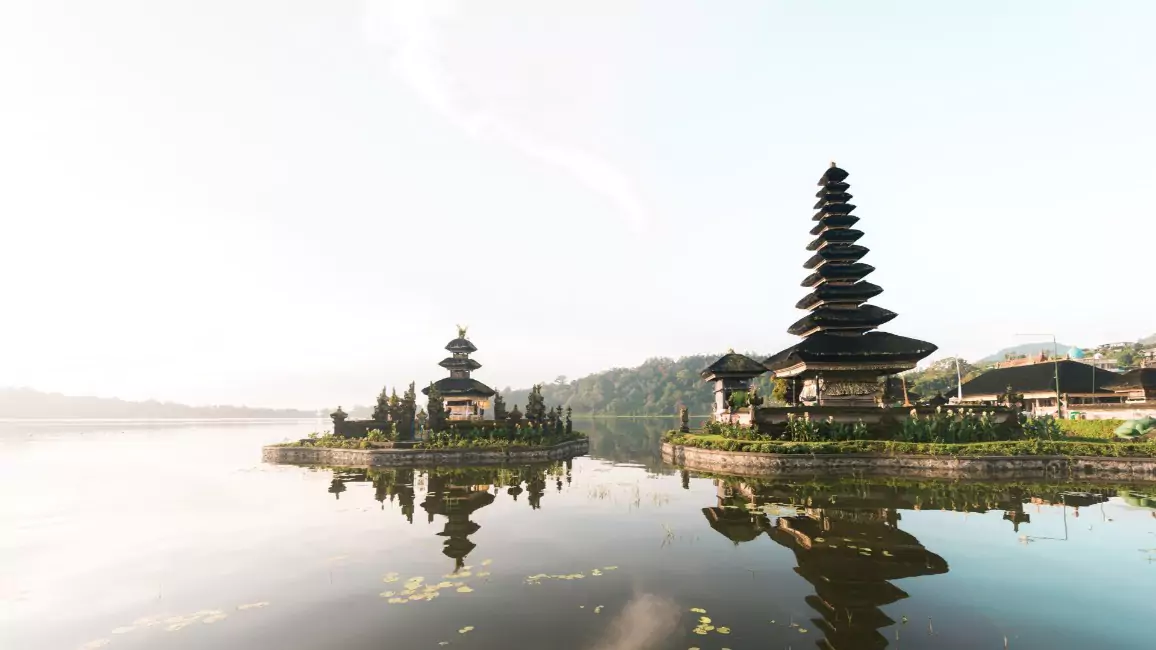The Balinese calendar holds a special place in the hearts of the locals in Bali, Indonesia. This unique timekeeping system has guided the daily lives of the Balinese people for centuries, shaping their culture and religion. In this article, we’ll explore nine fascinating facts about the Balinese calendar and its influence on local traditions and beliefs.
1. The Balinese Calendar: A Fusion of Two Systems
The Bali calendar combines the Saka and Pawukon calendars. The Saka calendar, based on the lunar cycle, determines religious ceremonies and holidays. It features 12 months of 30 days each. Meanwhile, the Pawukon calendar guides agricultural and daily activities. This 210-day calendar consists of 30 seven-day weeks, each with its own name and meaning.
2. Nyepi: The Day of Silence

Nyepi, the Balinese New Year according to the Saka calendar, usually falls in March. The Balinese observe this day with complete silence, fasting, and meditation. By refraining from activities, they believe they can trick evil spirits into thinking the island is empty, ensuring peace for another year.
3. Unique Naming System
Each of the seven days in a Balinese week has a name and a corresponding symbol. The names are Redite (Sunday), Coma (Monday), Anggara (Tuesday), Buda (Wednesday), Wraspati (Thursday), Sukra (Friday), and Saniscara (Saturday). You’ll frequently see these symbols in traditional Balinese art and crafts.
4. Wuku: The 30-Week Cycle
The Pawukon calendar divides into 30 weeks called “wuku.” Each wuku has its own name, such as Sinta, Landep, and Wariga. Furthermore, the Balinese attribute specific characteristics and influences on daily life to each wuku. Some are considered favorable for planting crops, while others are ideal for harvesting.

5. Ceremonial Days

The Balinese calendar is replete with numerous ceremonial days, each with its own purpose and meaning. Galungan celebrates the victory of good over evil, and Kuningan marks the end of the Galungan period. During these times, the Balinese perform various rituals, offer prayers, and create beautiful offerings to their gods.
6. Dewasa Ayu: Auspicious Days
Dewasa Ayu, meaning “good day,” is a crucial concept in Balinese culture. The Balinese consider certain days more auspicious than others for important events like weddings, house blessings, and even business dealings. They use a special calendar called the Tika to determine these lucky days based on complex calculations.
7. The Priest’s Role

Balinese priests play a vital role in determining important dates and guiding the community through various ceremonies. They use their knowledge of the Bali calendar to decide when to hold certain rituals. Additionally, they advise people on the best times for important life events. This knowledge passes down from generation to generation.
8. The Agricultural Calendar and Lunar Cycle
The Saka calendar, based on the lunar cycle, is closely linked to agriculture in Bali. Balinese farmers use the moon’s phases to determine the best times for planting, harvesting, and other agricultural activities. The new moon is considered a good time for planting, while the full moon is ideal for harvesting.
9. A Living Tradition
Despite the changes Bali has undergone over the years, the Balinese calendar remains a vital part of the island’s culture and identity. It continues to guide the daily lives of the Balinese people, from the most significant ceremonies to the simplest tasks. Understanding and appreciating this unique calendar system offers a deeper insight into the rich history and traditions of Bali.
Do you want to learn 5 Mystical Bali Superstitions? We have the article for you 🙂
Frequently Asked Questions (FAQ):
- Can tourists participate in Balinese ceremonies?
Yes, tourists are often welcome to observe and even participate in some Balinese ceremonies. However, it’s essential to be respectful and follow local customs and dress codes. - How can I find out about upcoming ceremonies during my visit to Bali?
Ask our hotel staff or local tour guides about any upcoming ceremonies, we will be happy to inform you! - Are there any specific rules I should follow during Nyepi?
During Nyepi, tourists must stay within their hotel grounds and refrain from making noise or using lights. The airport and all businesses close, and no one is allowed on the streets. - Can I buy a Balinese calendar as a souvenir?
Yes, you can find Balinese calendars in many souvenir shops and markets throughout the island. They make unique and meaningful souvenirs or gifts for friends and family back home. - How does the Balinese calendar differ from the Western calendar?
The Balinese calendar combines lunar and solar cycles, while the Western calendar is based solely on the solar cycle. Moreover, the Bali calendar has a unique 210-day cycle called the Pawukon, which is not found in the Western calendar.
Conclusion:
The Balinese calendar is a fascinating and complex system that offers a glimpse into the rich cultural heritage of Bali. From the dual Saka and Pawukon calendars to the numerous ceremonial days and the importance of Dewasa Ayu, this ancient timekeeping method continues to shape the lives of the Balinese people. By understanding and appreciating this unique aspect of Balinese culture, we can deepen our connection to this enchanting island and its people.
Want to know more facts about Bali? Check our article about the Magic of Bali
Book your stay with us here and start your Bali Journey 🙂

